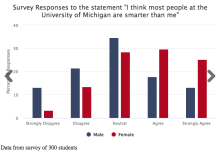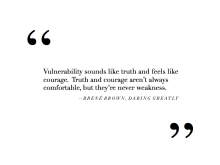CAPS Embedded psychologist Laura Monshau was recently featured in a Rackham Graduate School Q&A on "Grad Student Well-Being." Dr. Monshau shares about common graduate students issues, resources, recommendations, and general reflections on grad school and mental health.
On Campus Treatment Resources
If you have mental health concerns, call or visit one of the following offices for confidential support. The following offices have experience working with the diversity of students represented in our student body.
Counseling and Psychological Services (CAPS)
Counseling and Psychological Services is committed to providing multicultural and multidisciplinary expert therapeutic support. Clinical services include brief personal therapy for individuals, couples and groups and crisis intervention.
Older Adults or Adults Returning to University
With the ever-increasing demand on higher education in the job market. More adults than ever are coming back to attain a degree, whether that be a Bachelor’s, Master’s, etc. We define Adults Returning to University as anyone who is 25 years or older and returning to the university after taking some time off from school. With this identity, there are several strengths and challenges students may face, CAPS is here to help if you find yourself struggling.
Play Day 2019: Animate Your Life
On February 6th, 2019, CAPS successfully hosted Play Day, our largest winter outreach event. This year’s theme focused on animation as students participated in different play activities connected to a specific animated movie. Activities included but were not limited to balloon animals, Legos, animation drawing, coloring, and Pokémon Go. Each activity was designed to promote psychological wellness such as relieving stress and boredom, creating social connections, and promoting joy.
Imposter Syndrome at UM
The Michigan Daily surveyed 400 students with a focus on imposter syndrome. The survey looked at how UM students compare themselves to others in relation to intelligence. In THIS ARTICLE, Dr. Christine Asidao was featured as an expert from CAPS.
Seasonal Affective Disorder on Campus
THIS Michigan Daily article featured CAPS support to treat Seasonal Affective Disorder, or SAD. The Daily interviewed two CAPS staff on the topic, Dr. Vicki Hays and Dr. Jim Dolan.
Dr. Vicki Hays shared the following regarding SAD:
Why Some Men Don't Talk
Some men struggle talking with others, especially other men, about their feelings, experiences, and struggles. There can be fear or hesitation that opening up, especially to another man will expose one’s failure because they were not able to hold it together and “man up.” Others may relate sharing their feelings and “being emotional” as something only women do and therefore do not talk. However, sharing one’s struggles is not specific to those who identify as female but rather it is a human quality.
Men and Vulnerability
Vulnerability is what connects us to other human beings. It is when we “expose” something about ourselves whether that be experiences, emotions, feelings, and/or behaviors to another person in order to form a connection and learn about each other. Since childhood, many men are taught vulnerability equals weakness and therefore men are not supposed to be vulnerable. It can also be difficult to be vulnerable as there might be a fear of feeling embarrassed or being hurt by someone’s response.
Men Get Depressed Too
Depression is a serious but highly treatable medical condition that can strike anyone regardless of age, ethnic background, socioeconomic status, or gender. However, depression often goes unrecognized by those who have it, by their families and friends, and even by their physicians. Men, in particular, may be unlikely to acknowledge they have depressive symptoms and seek support. However, depression is common in men and is not a sign of personal weakness or a flaw in character.
Men and Body Image
Women are not the only individuals who struggle with body image. Struggling with body image is a human experience that many men go through. Just like all individuals, men are constantly surrounded by images of athletes, celebrities, and media that define what the “perfect” male body is. Due to these pressures and images, some men struggle with dieting, overeating, eating disorders, and steroid use.










